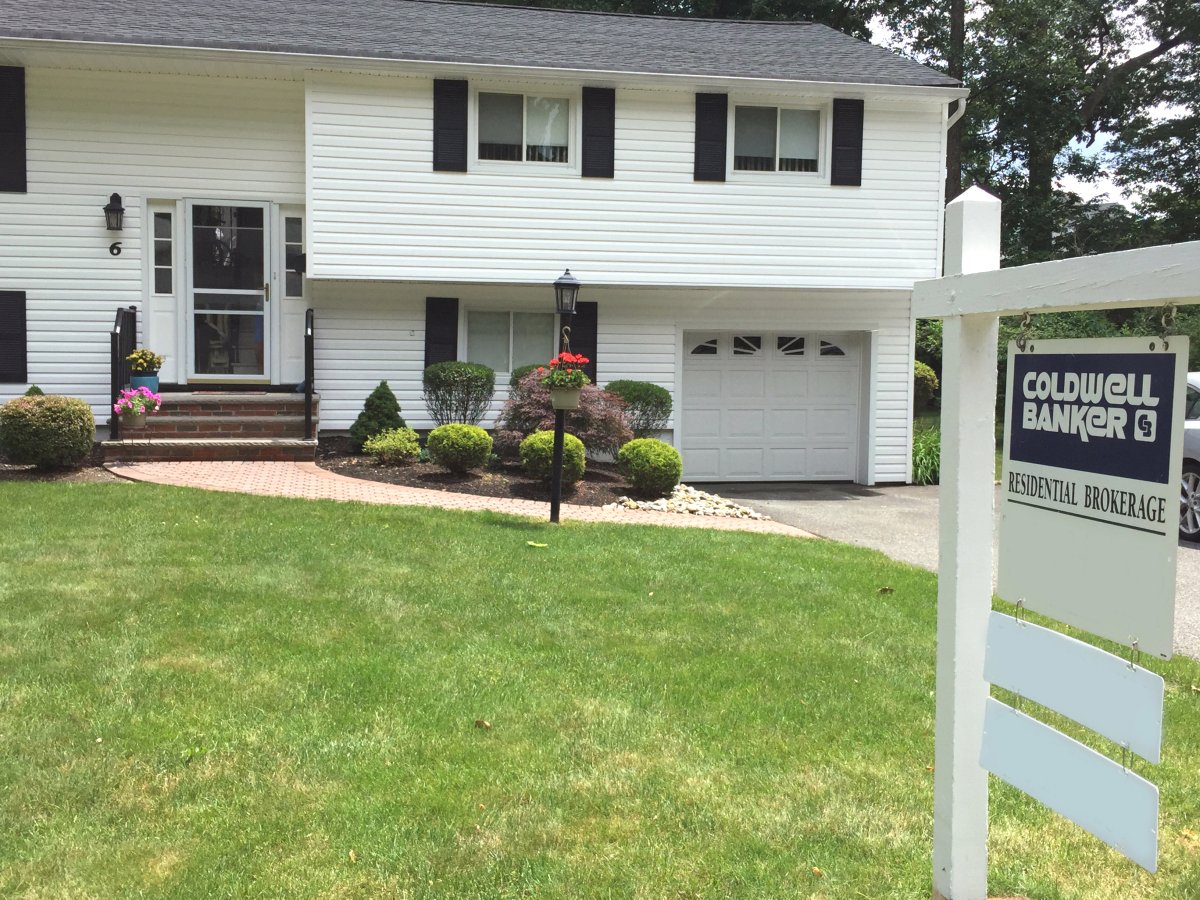-
The Tax Horror Stories Keep Piling Up in New Jersey - April 16, 2024
-
A portion of Mulholland Drive, damaged by mudslides in winter storms, reopens - May 26, 2024
-
‘Maybe You Don’t Want to Win’ - May 26, 2024
-
Donald Trump Putting Law Enforcement in Danger: Attorney - May 26, 2024
-
Avoid the waters of these 5 L.A. County beaches this holiday weekend, public health officials say - May 26, 2024
-
Bawdy Comedy ‘Anora’ Wins Palme d’Or at Cannes Film Festival - May 26, 2024
-
Map Shows Heat Wave Zone Spread Into Five New States - May 26, 2024
-
Azusa police arrest suspected slingshot-wielding vandal - May 25, 2024
-
Donald Trump Hammers Judge Ahead of Jury Instructions - May 25, 2024
-
Sometimes U.S. and U.K. Politics Seem in Lock Step. Not This Year. - May 25, 2024
The Tax Horror Stories Keep Piling Up in New Jersey
A front-page story in USA Today last week was different than most: It took the form of a quiz. “Residents of this state pay $987,117 in lifetime taxes. Guess which one?” asked the headline.
It took a Secaucus second for residents of New Jersey—and ex-residents like me—to get the answer: the Garden State. The nearly $1 million lifetime tax tab—that’s right, 1 million!—was nearly double the U.S. state average, which was $524,625. And New Jersey ranked the highest of all 50 states, proving that not all No. 1 rankings are worth having.
USA Today‘s story was based on a recent report from the personal finance site Self Financial, which considered all taxes on income (federal, state and local), homes, cars, food, clothing, gas, food and entertainment.
This wasn’t the only bad news on the tax front for New Jersey residents. Here is another recent headline, in the Asbury Park Press last month: “New Jersey has the highest property tax rates in the country. Here’s how much we pay.” The average annual property tax bill, readers soon learned, was a whopping $9,141 in 2023, or $761 per month.
Just weeks before that tax horror story, The Wall Street Journal editorial page weighed in with another. “Phil Murphy’s Tax Resurrection in New Jersey: The Governor revives a 2.5% corporate tax after only two months.” The additional 2.5 percent pushed the state to the top position in corporate sales taxes among the 50 states, at 11.5 percent. This at a time when New Jersey’s unemployment rate of 4.8 percent is tied for the third highest in the country.
A month earlier, New Jersey earned another tragic top ranking, this time in United Van Lines’ annual National Movers Study. “For the sixth consecutive year, the study found more residents moved out of New Jersey than any other state, as 65 percent of all moves were outbound,” a United Van Lines press release said. This top ranking—one for people fleeing your state—may be the worst one of all.
“Who needs a house in Hackensack?” Billy Joel sang in his 1977 hit song “Movin’ Out.” The song would prove to be prophetic, as New Jersey residents are doing just that.
One story explains a lot about why so many people are fleeing New Jersey hits close to home: It’s my father’s story. He was born in Jersey in 1932, a year after the George Washington Bridge was built, connecting his home state to the nation’s largest city. The bridge was a symbol of hope—and the future.
After college and service in the Air Force, he got married, got a job, had kids—four by the age of 30—and saved for a house. He purchased his first and only home in 1961 in northern New Jersey. A history teacher and basketball coach, he worked night and summer jobs to support his family. Two decades later, he became the school’s superintendent in the town that gave him his first job.

Photo by Deb Cohn-Orbach/UCG/Universal Images Group via Getty Images
Bergen County was a beautiful place to raise a family. A half-hour drive east and we were in New York City to see a Knicks game or a Broadway play. An hour’s drive south and we were enjoying a day or two at the Jersey Shore. We lived a great middle-class life. Rising taxes and public pension costs had not yet put the squeeze on working-class New Jersey families. With some part-time work on the kids’ part and help from Mom and Dad, college was within reach of most families in town. Two of us got law degrees, one an MBA, and our sister skipped college to become a songwriter.
Twelve years ago, my dad’s bride of 56 years died. Retired and living on a pension, he was alone. Most of his friends had died, and the kids he’d raised had left Jersey years ago. One—me—would tell you he fled. When he was close to packing up, the man who taught history most of his life gave me a brief history lesson on New Jersey taxes. I thought it would be a bore, but the story turned out to be a slow-motion tragedy.
He started with the history of New Jersey’s sales tax. The state, he told me, once dabbled with its very first state sales tax way back in 1935—2 percent during the Great Depression—but it was quickly repealed. It was reinstated at 3 percent in 1966 and has since risen to 6.625 percent.
Next was the state income tax. New Jersey, my dad reminded me, was granted statehood in 1787 and somehow managed to live without an income tax until nearly two centuries later. I stumbled on a New York Times story about the big fight in the Legislature in 1976 to get the first income tax passed—it was described as a “historic struggle” that faced “decades of resistance.” The first tax rate was 2 percent. Today, it’s 10.75 percent for top earners. Only three states have higher top rates.
Then came a history of tolls in New Jersey. It cost 50 cents to cross the George Washington Bridge when my dad was a kid. It took nearly 40 years before the toll was increased, doubling to $1 in 1971. It took only five years for the next hike, in 1976. Then more in 1983, 1987 and 1991—when the toll reached $4. Then came increases in 2001, 2008, 2011, 2012, 2014, 2015, 2020 and 2023. The toll is now $17.
I saved the story about the cruelest—and most regressive—tax for last. My dad couldn’t recall the annual property taxes back in the early 1960s, the number was that insignificant. The number he couldn’t forget was his last property tax bill, which exceeded $12,000.
Back in 1961, my dad reminded me, he paid $32,000 for his home. If you had told him back then that in 50 years three years of property taxes would exceed the original cost of his home, he’d have called you crazy. But that’s what happened. The home my father owned free and clear was neither free nor clear. His landlord—the state of New Jersey—was charging him $1,000 a month for the privilege to live in his paid-off home. And if he skipped a few payments, the local sheriff would soon be knocking on his door, ready to seize it and sell it for him.
Worried that future tax increases would eat up his retirement savings, my then 81-year-old dad, who’d spent his life in New Jersey, wanted out. And he wanted out because the state’s leaders treated residents like an ATM, passing tax increases and saddling the state with public pension obligations that priced him out of the home he owned.
And make no mistake about it: Much of what’s driving tax increases in New Jersey is unfunded public pension obligations. In its annual report, titled “Unaccountable and Unaffordable,” the American Legislative Exchange Council reported that New Jersey’s unfunded liabilities rank close to the bottom—at No. 45—at $321 billion. That’s $34,644.98 for every man, woman and child in the state. The three states with the lowest unfunded liabilities per capita were Tennessee ($7,657), Indiana ($8,041) and Florida ($10,743).
How did this man-made economic disaster happen? “In New Jersey, the tax recipients are more organized than the taxpayers,” a public pension reformer in New Jersey said.
Former New Jersey Governor Chris Christie had this to say about the system he tried to reform: “One state retiree, 49 years old, paid, over the course of his entire career, a total of $124,000 towards his retirement pension and health benefits. What will we pay him? $3.3 million in pension payments over his life and nearly $500,000 for health care benefits—a total of $3.8 million on a $120,000 investment.”
That’s not just bad math, numbers like those. It’s bad faith. New Jersey’s wretched fiscal stewardship, bordering on taxpayer abuse, is one of the primary reasons New Jerseyans will continue movin’ out of the Garden State. They’ll be looking for greener pastures in states that treat them—and their precious income, capital and assets—more humanely.
Uncommon Knowledge
Newsweek is committed to challenging conventional wisdom and finding connections in the search for common ground.
Newsweek is committed to challenging conventional wisdom and finding connections in the search for common ground.
Source link































